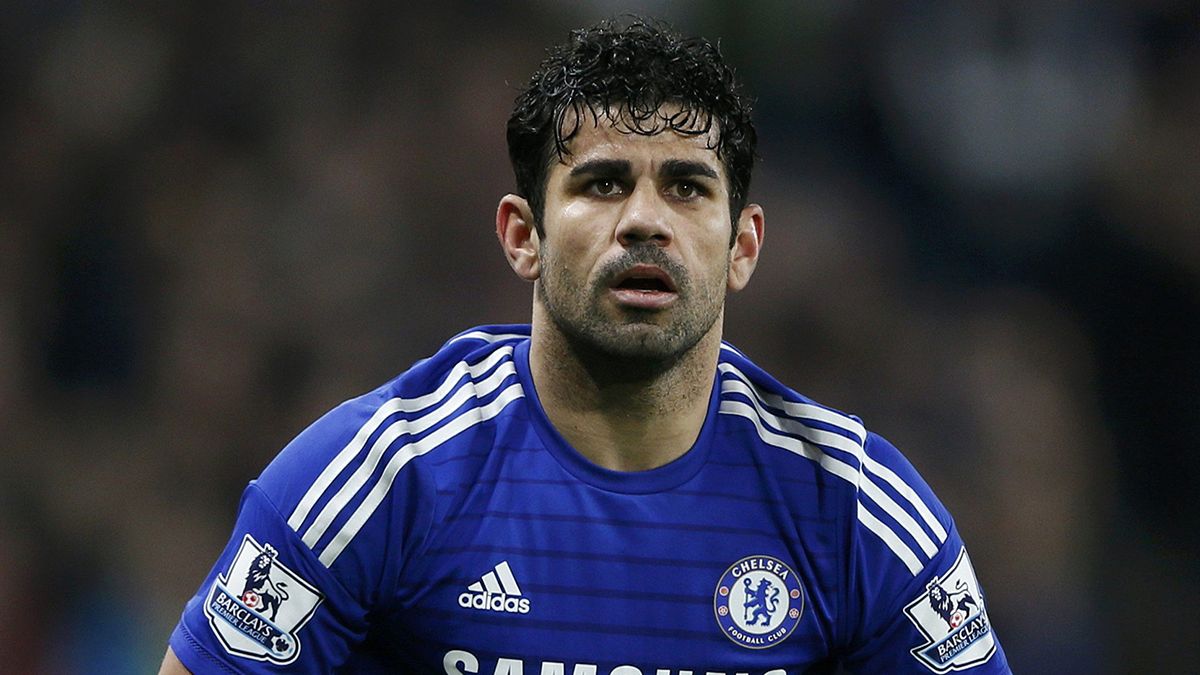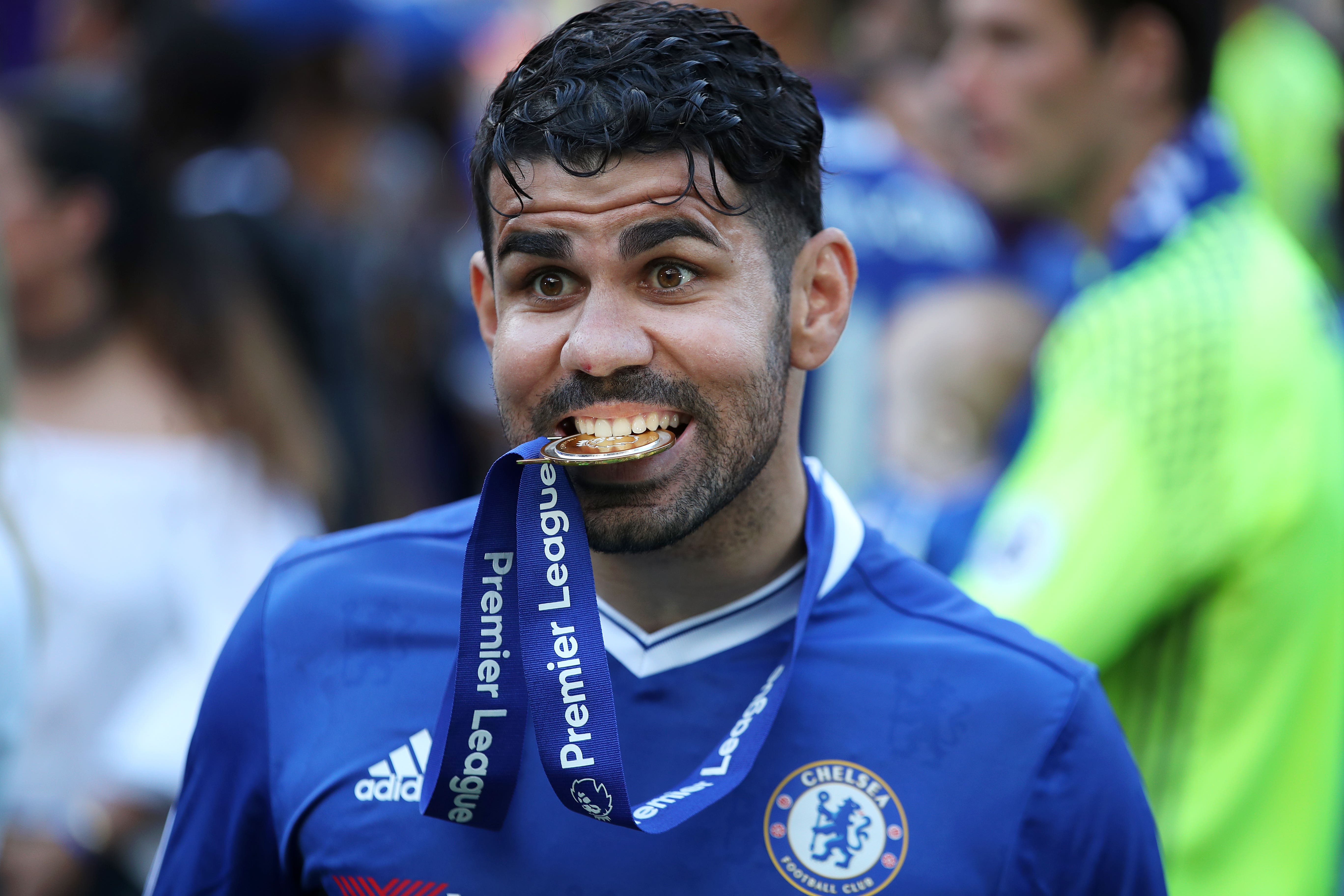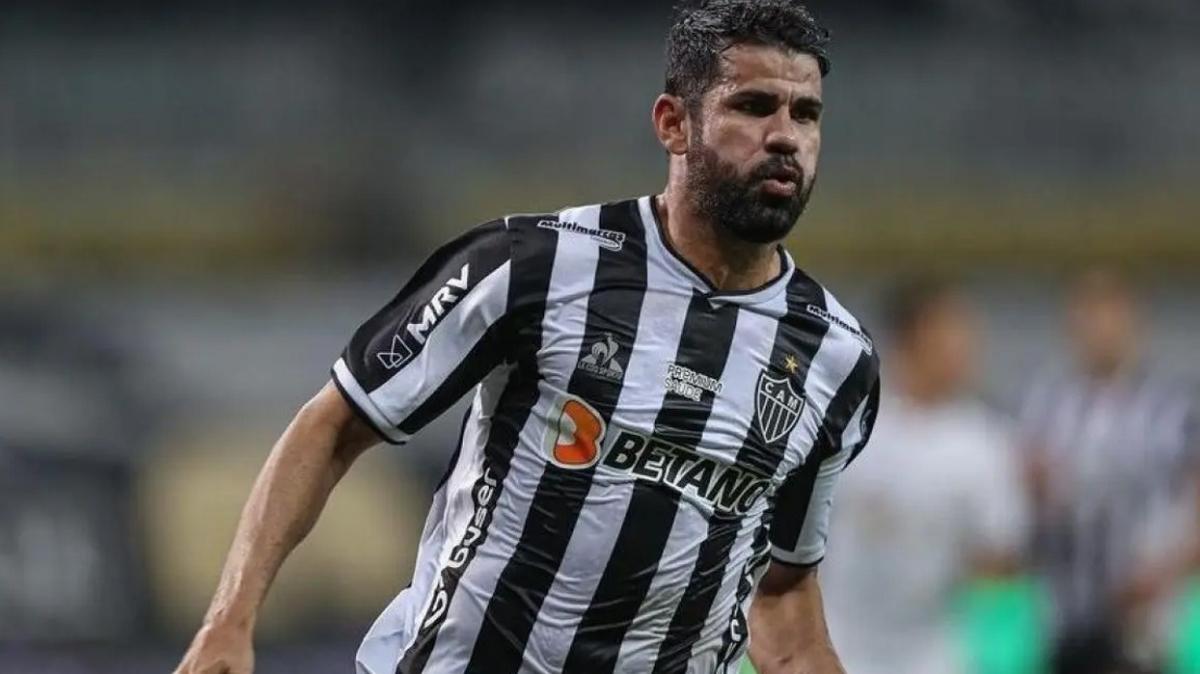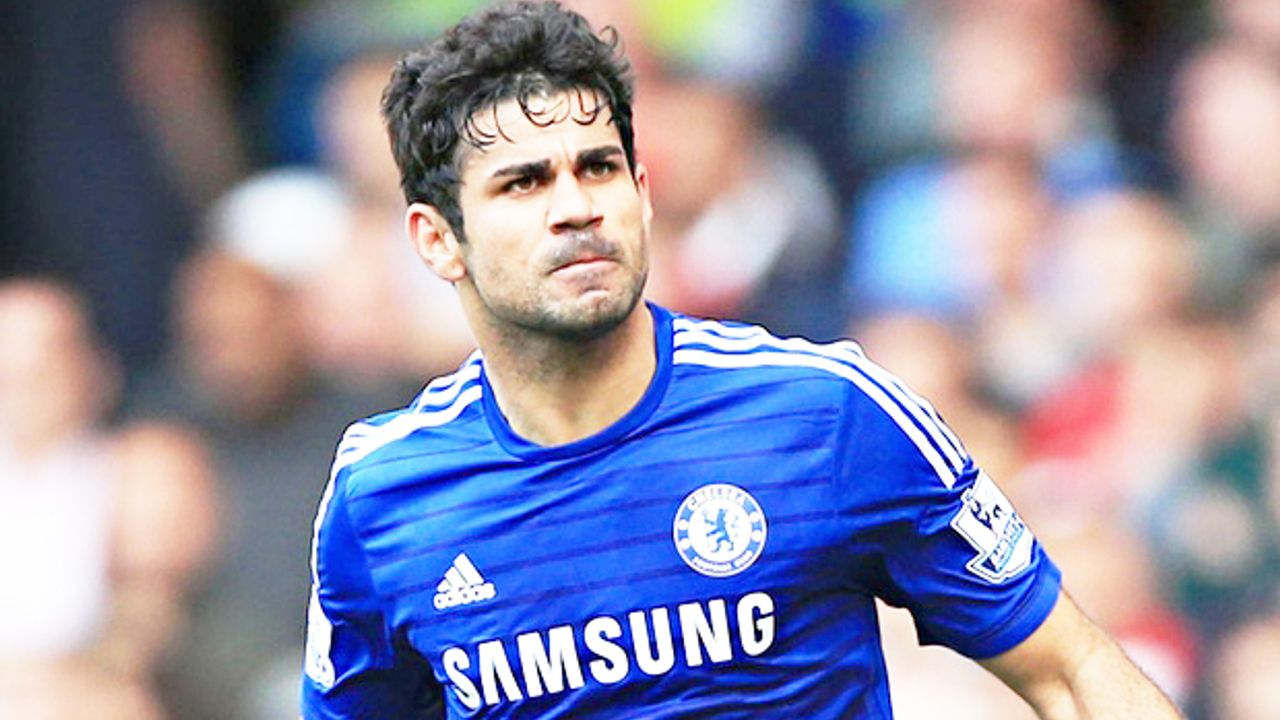Diego Costa (Part 1)
Diego Costa (Part 1)

Diego da Silva Costa, commonly known as Diego Costa, is a professional footballer renowned for his prowess as a striker. Born on October 7, 1988, in Brazil, he currently plays for Grêmio in the Campeonato Brasileiro Série A.
Costa's career began in Brazil before he made the move to Europe, joining Braga in Portugal in 2006 at the age of 17. Although he didn't feature for Braga, he gained experience on loan spells with Penafiel before eventually signing with Atlético Madrid in the following year. Loan stints at Braga, Celta Vigo, and Albacete followed, showcasing his potential.
His breakthrough came during his time at Real Valladolid in 2009, where he emerged as their top scorer in just one season. He returned to Atlético Madrid and gradually established himself as a prolific goalscorer. During his tenure, he played a crucial role in helping Atlético clinch the La Liga title, Copa del Rey title, and UEFA Super Cup. Additionally, he contributed to their journey to the 2014 UEFA Champions League final.
In 2014, Costa made a move to the Premier League, joining Chelsea in a significant transfer deal. During his time at Chelsea, he enjoyed success, winning multiple trophies including two Premier League titles and a League Cup. However, his tenure was also marked by controversies and clashes, notably with head coach Antonio Conte.
Following a fallout with Conte, Costa returned to Atlético Madrid in 2018, where he continued to excel, securing another UEFA Europa League title and UEFA Super Cup. Notably, Costa holds dual citizenship of Brazil and Spain, having switched his international allegiance to Spain after initially representing Brazil. He has since made significant contributions to the Spanish national team, participating in the FIFA World Cup tournaments of 2014 and 2018.
Costa's playing style is characterized by his physicality, aggression, and goal-scoring instincts. However, he has often faced criticism and disciplinary actions due to his fiery temperament and confrontational behavior on the pitch. Despite these challenges, Costa remains a formidable striker known for his ability to unsettle defenses and find the back of the net.
Diego Costa's journey to professional football began in his hometown of Lagarto, Sergipe, Brazil. Despite regularly playing street football, he didn't initially envision a career in the sport due to the remote location of his hometown. However, his father, José de Jesus, named him after the legendary Argentine footballer Diego Maradona, showcasing his early influence in the game. Costa also has an elder brother named Jair, named after Brazilian player Jairzinho.
At the age of 15, Costa left Sergipe and moved to São Paulo, where he worked in his uncle Jarminho's store. Despite not having formal training in football, his uncle's connections led him to join Barcelona Esportivo Capela, a team in São Paulo aimed at providing an alternative to youth involved in drugs and gangs in the favelas. It was here that Costa began his professional career, earning a modest salary of around £100 per month.
Costa's talent soon caught the attention of Portuguese agent Jorge Mendes, who offered him a contract at Braga. Despite initial hesitation from his father about sending him to Europe, Costa was determined to seize the opportunity. His journey to Europe marked the beginning of his professional football career, paving the way for his eventual success on the global stage.
Interestingly, Costa's brother Jair also had aspirations in football but never turned professional. Despite being a technically skilled player, Jair lacked focus and didn't secure a professional contract, although he did have a trial at Basque club Salvatierra. The two brothers occasionally played together but were sometimes kept apart to prevent arguments on the field.
Diego Costa embarked on his European journey in February 2006 when he signed for Braga in Portugal. However, he initially struggled with feelings of loneliness and adapting to the colder climate of northern Portugal. To gain playing time and experience, Costa was loaned to Penafiel, a second division club, for the summer. Managed by former Portugal international Rui Bento, Penafiel saw potential in Costa and sought to refine his talents.
In December 2006, Costa's agent Jorge Mendes orchestrated his transfer to Atlético Madrid for €1.5 million and 50% of the player's rights. However, Costa remained on loan at Braga until the end of the season. Despite interest from other clubs like Porto and Recreativo de Huelva, Atlético secured Costa's signature, with director Jesús García Pitarch acknowledging the risk of investing in a relatively inexperienced player.
Costa's loan spell at Penafiel saw him score 5 goals in 13 games before being recalled to Braga in January 2007. He made an immediate impact, scoring his first goal for Braga in a crucial UEFA Cup match against Parma, helping his team advance to the next round. However, his season was cut short due to a metatarsal injury, sidelining him for six months.
Upon joining Atlético Madrid, Costa was hailed as "the new Kaká" by club president Enrique Cerezo. However, there were differing opinions within the club about how to integrate him into the team. While scout Javier Hernández advocated for Costa's development in the club's reserves, García Pitarch proposed immediately loaning him out to gain experience elsewhere. Costa made his debut for Atlético Madrid in a tournament match against Celta de Vigo, marking the beginning of his journey with the Spanish club.
In a move to gain more playing time and experience, Diego Costa and Mario Suárez were loaned to Segunda División side Celta de Vigo for the season. Under the management of former Ballon d'Or winner Hristo Stoichkov, Costa quickly became a regular in the team's lineup. His first goal in Spanish football came in his seventh league match, during a dominant home victory over Xerez. However, his goal celebration led to a brawl on the pitch, resulting in his sending off. This incident drew criticism from Stoichkov, who unexpectedly left his position as manager soon after.
Costa's time at Celta de Vigo was marked by further controversies. He was involved in altercations with opponents, including striking Málaga defender Weligton in the head, which resulted in an injury requiring medical attention. Additionally, he was sent off in another match against Sevilla Atlético for diving and dissent. Despite these incidents, Costa remained loyal to his strike partner Quincy Owusu-Abeyie, despite the language barrier between them.
Throughout the season, Costa showcased his talent with notable performances, such as scoring both goals in a crucial win against Numancia. However, he also faced disciplinary issues, as evidenced by his red card against Tenerife, which resulted in Celta de Vigo squandering a lead and settling for a draw. Despite Costa's contributions on the field, his disruptive behavior earned him a reputation as a controversial figure within the team. Celta de Vigo narrowly avoided relegation at the end of the season, amidst concerns about Costa's conduct.
References
- "Acta del Partido celebrado el 06 de abril de 2019, en Barcelona" [Minutes of the Match held on 6 April 2019, in Barcelona] (in Spanish). Royal Spanish Football Federation. Retrieved 17 June 2019.[permanent dead link]
- ^ "FIFA World Cup Russia 2018: List of Players: Spain" (PDF). FIFA. 15 July 2018. p. 28. Archived from the original (PDF) on 11 June 2019. Retrieved 17 June 2019.
- ^ "Diego Costa". Wolverhampton Wanderers F.C. Archived from the original on 22 March 2023. Retrieved 7 November 2022.
- a b "Diego allo scadere, Parma fuori" [Diego at the end, Parma out] (in Italian). UEFA. 23 February 2007. Retrieved 22 August 2014.
- a b "Line-ups" (PDF). UEFA. 27 August 2010. Archived from the original (PDF) on 4 February 2020. Retrieved 27 August 2010.
- a b c "Diego Costa 'likes to cheat' – Chelsea defender Kurt Zouma". ESPN FC. 21 September 2015. Retrieved 21 September 2015.
- a b c "Diego Costa must learn respect – Everton boss Roberto Martinez". BBC Sport. 30 August 2014. Retrieved 31 August 2014.
- a b c d e f g Burt, Jason (31 January 2015). "Diego Costa: I take things to limit but I did nothing wrong". The Daily Telegraph. Retrieved 31 January 2015.
- ^ West, Andy (26 September 2015). "Diego Costa: Does the Chelsea striker have a softer side?". BBC Sport. Retrieved 27 September 2015.
- ^ Guillén 2015, p. 9
- ^ Guillén 2015, p. 4
- ^ "A Primera desde la calle" [Diego Costa: To Primera from the streets]. El País (in Spanish). 23 January 2010. Retrieved 25 July 2010.








































